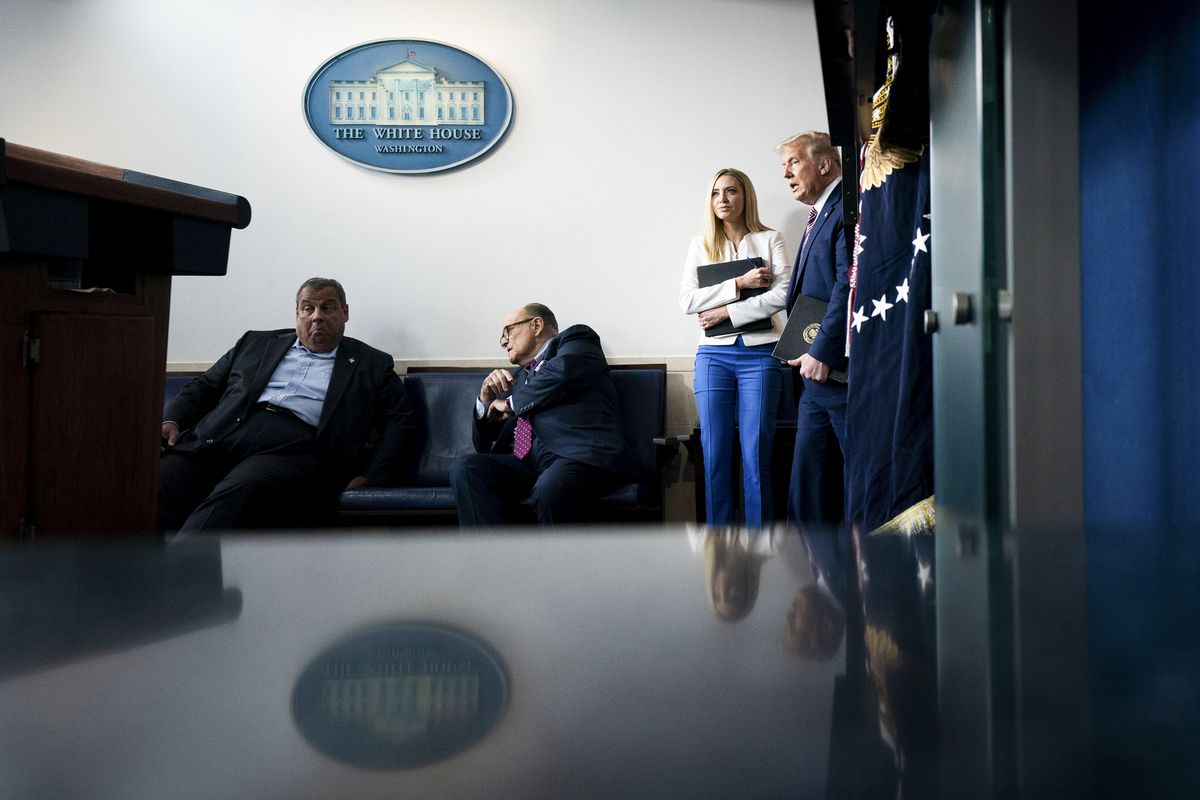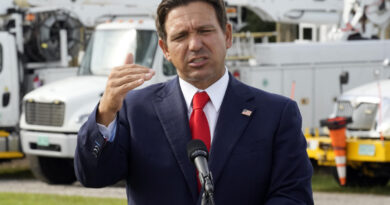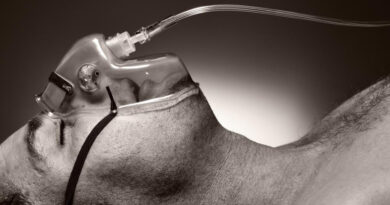After Trump’s Covid-19 diagnosis, his lies matter more than ever
On Friday morning, as both the New York Times and the Associated Press reported that President Donald Trump was already experiencing symptoms from his coronavirus diagnosis, White House coronavirus adviser Scott Atlas told Fox News there was nothing to worry about.
“I anticipate a complete and full and rapid recovery back to normal after his necessary confinement period. I anticipate he’ll be back on the road and in full swing,” Atlas said, adding that he had “never seen anyone with more energy and more vigor, at any age.”
After the interview aired, Fox anchor (and first debate moderator) Chris Wallace did something unusual: He told viewers that Atlas is claiming certainty that he can’t possibly have and should simply be ignored.
“Dr. Scott Atlas is not an epidemiologist, is not an infectious disease specialist. He has no training in this area at all,” Wallace said. “Listen to people like Anthony Fauci, listen to people like Deborah Birx — who have been largely cut off. Listen to the independent people who don’t have a political axe to grind. I don’t think Scott Atlas is one of those people.”
In about a minute of commentary, Wallace highlighted one of the biggest problems surrounding the president’s diagnosis: We simply cannot trust what this White House has to say on the matter.
This is a crisis where everything — the state of the campaign, the economy, the Supreme Court, the governance of the country, even the management of international crises — could change based on new information on the president’s health. No one has more direct and authoritative knowledge on this topic than the president and his team; they should be able to help the American public understand what’s happening and provide guidance to leaders in Washington and abroad.
Except we can’t trust this White House — especially on the coronavirus. They have lied and lie constantly. And right now, the implications of this serial dishonesty are bigger than ever.
The lying has always been terrible. Now it’s a disaster.
Presidents are, historically speaking, cagey about their health. Jacob Appel, an assistant professor at Mount Sinai School of Medicine who studies the health histories of candidates, told Vox that presidents have routinely covered up or downplayed serious problems. Woodrow Wilson hid an incapacitating stroke from the public; JFK failed to disclose a panoply of problems (ranging from Addison’s disease to chronic back pain) to maintain his youthful image.
But President Trump is extraordinarily dishonest, even by presidential standards. This summer, the Washington Post reported that Trump had told more than 20,000 falsehoods during his time in office — a number that dwarfs any similar count for any previous president.
This has been a particular problem when it comes to the coronavirus, a subject on which Trump admitted to deceiving the public in an interview with Bob Woodward. “I wanted to always play it down,” he told Woodward in March. “I still like playing it down, because I don’t want to create a panic.” A new study by researchers at Cornell University and Cision Global Insights identified Trump as “likely the largest driver of … COVID-19 misinformation.”
As the president goes, so goes the White House. From the very first press briefing of the new administration, when then-press secretary Sean Spicer risibly insisted that Trump had the largest inauguration crowd in history, White House staff have always lined up behind the lies told by the president and spun up their own to cover for him. It’s the nature of the beast: Defending the president is part of their job, so when he lies they have to maintain it.
On the topic of the coronavirus, this has meant consistently playing down the threat of the disease. The White House’s strategy on the pandemic has been to declare “Mission Accomplished,” claiming that Trump’s ban on travel from China earlier this year helped avoid the worst while doing as little as possible to acknowledge the more than 200,000 American deaths from the disease since then. Trump’s mishandling of the outbreak early on is the single biggest problem for his reelection bid, so his administration’s aim is to assert that it didn’t happen, and to sideline what’s happening right now — employing people like Atlas, a conservative radiologist with eccentric views on the virus, to defend their approach.

The result is that it is genuinely difficult to believe anything that comes out of this administration — be it a Trump tweet insisting he’s doing fine or an official statement on White House letterhead. The entire White House-to-public informational pipeline has been corrupted, especially when it comes to the virus.
Of course, it’s possible that what we hear will actually be the truth. The fact that the White House has lied a lot, and on the coronavirus specifically, doesn’t mean that every official statement on Trump’s health will be false.
But the problem is we can’t know one way or another. Trump’s health is by definition unknowable to anyone who doesn’t have some kind of access to him; we need sources who have seen the president or his medical paperwork to get any kind of authoritative information on how he’s doing.
Yet the people who have the most direct access and who communicate directly with the public, the president and his inner circle, can’t be trusted. If they release good news, you can’t blame people who might think they’re trying to play down the threat from the virus again. And if they release bad news, some will see it as a play for sympathy — there are already conspiracy theories floating around social media, spread by prominent people like The Wire creator David Simon, that Trump is faking it for political reasons.
This is all happening in an informational environment where a series of malign actors, ranging from conspiracy theorists like Alex Jones to hostile powers like Russia, are already working to corrupt America’s understanding of the world. Russia Today, the Kremlin’s English-language propaganda outlet, has already suggested (with no real evidence) that Biden may have contracted the virus.
We — the American public and the world more broadly — are in a situation where we badly need authoritative information on the president’s prognosis. And yet, what should be the best source of information in a national crisis is especially unreliable.
The implications of this condition of epistemic uncertainty are almost impossible to predict. They almost certainly can’t be good.
Millions turn to Vox each month to understand what’s happening in the news, from the coronavirus crisis to a racial reckoning to what is, quite possibly, the most consequential presidential election of our lifetimes. Our mission has never been more vital than it is in this moment: to empower you through understanding. But our distinctive brand of explanatory journalism takes resources. Even when the economy and the news advertising market recovers, your support will be a critical part of sustaining our resource-intensive work. If you have already contributed, thank you. If you haven’t, please consider helping everyone make sense of an increasingly chaotic world: Contribute today from as little as $3.
*** This article has been archived for your research. The original version from Vox.com can be found here ***


